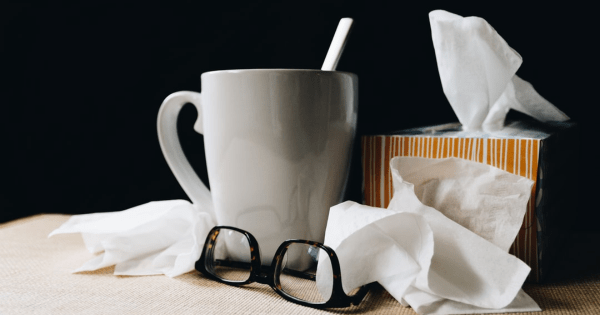
Now that we’ve officially transitioned into the cooler fall months, some people are breathing a collective sigh of relief: the worst of the allergy season is behind us. After all, this is the time of year when blooming plants finally calm down and start to wither in the colder weather.
Unfortunately, this isn’t the case for many people. While summer allergens are slowly dwindling, fall allergies are here to take their place. People who experience fall allergies are usually allergic to ragweed, molds, and pollen. In fact, as many as 75% of people who experience spring allergies will be sensitive to ragweed when fall rolls around. Ragweed levels can last all the way through October, leading to itchy eyes, sneezing, and, of course, respiratory issues. If you have asthma, it’s important to bring your inhaler with you wherever you go.
On top of that, scientists have confirmed that fall allergies are worse this year. Pollen counts are higher because of climate change and we can expect the first frost to come a little later. This means that the allergens we’re suffering from can last a little longer than we’re used to. Since fall allergies have worsened, many people are stressed that they might have the novel coronavirus, also known as COVID-19.
This is made all the worse because some allergy reactions can coincide with symptoms of COVID-19. In fact, both issues include respiratory issues, coughing, headaches, and sore throats. While you should see a doctor right away if you’re concerned that you have COVID-19, there are some key differences between the symptoms of coronavirus and allergy symptoms that can help you differentiate the two on your own. Here’s how you can determine whether you have a bad bout of allergies or the COVID-19 virus.
Do you have a fever?
Fevers can be caused by a slew of factors: the flu, wound infections, and a host of other considerations. While changing your bandages regularly and checking for signs of infection every 24 hours can deter illnesses from happening, you might still have a fever from a small bout of food poisoning the next day.
A fever is a signal that your body is fighting off an infection or virus. As such, one of the hallmarks of COVID-19 is the presence of a fever. Allergies, on the other hand, do not result in a fever. If you’re simply experiencing fatigue and sneezing, you probably don’t have the coronavirus and likely need an allergy pill.
Do you have a runny nose?
If your body is producing mucus, you likely have allergies, not COVID-19. Allergies lead to mucus production because that’s your body’s way of trapping allergens and expelling them from the body. In addition, you can usually find a trigger for your allergies. If you, like 86% of people, love receiving flowers even though you’re allergic, maybe removing those from the equation will help you clear up. However, a runny nose could also be a sign of a cold or the flu, especially if you haven’t gotten your flu shot yet. COVID-19 does not typically result in mucus production like other ailments. Keep in mind that you can still catch a cold in spite of COVID-19 being a major threat! The best thing you can do is wear a mask to stop from getting sick. This is particularly important if you work in healthcare. Studies have shown that black healthcare professionals are two times as likely to catch the novel coronavirus than their white coworkers. Protect yourself, especially if you’re in a high-risk job.
Have you lost your sense of taste or smell?
If your nose is stuffy, it’s unlikely that you’ll be able to taste or smell anything. But if your nose is clear and you are still unable to use two out of your five senses, you might have COVID-19. This symptom was identified as an early indicator of COVID-19 a few months ago. If you’re able to breathe through your nose with ease, there’s no reason you should lose your sense of smell or taste.
If you’re ever concerned that you might have COVID-19, it’s important to seek the care of a medical professional. Even if you’re visiting your doctor once each year as recommended, you can fall ill at any time. On top of that, the verdict is still out on whether or not you can catch COVID-19 more than once as the virus evolves.
Whether it’s allergies or COVID-19, it’s better to be safe than sorry. Make sure to wash your hands often — especially after activities like checking your mail or running errands to the post office or grocery store. Take care of yourself — and your community — by getting checked out sooner than later.

Speak Your Mind